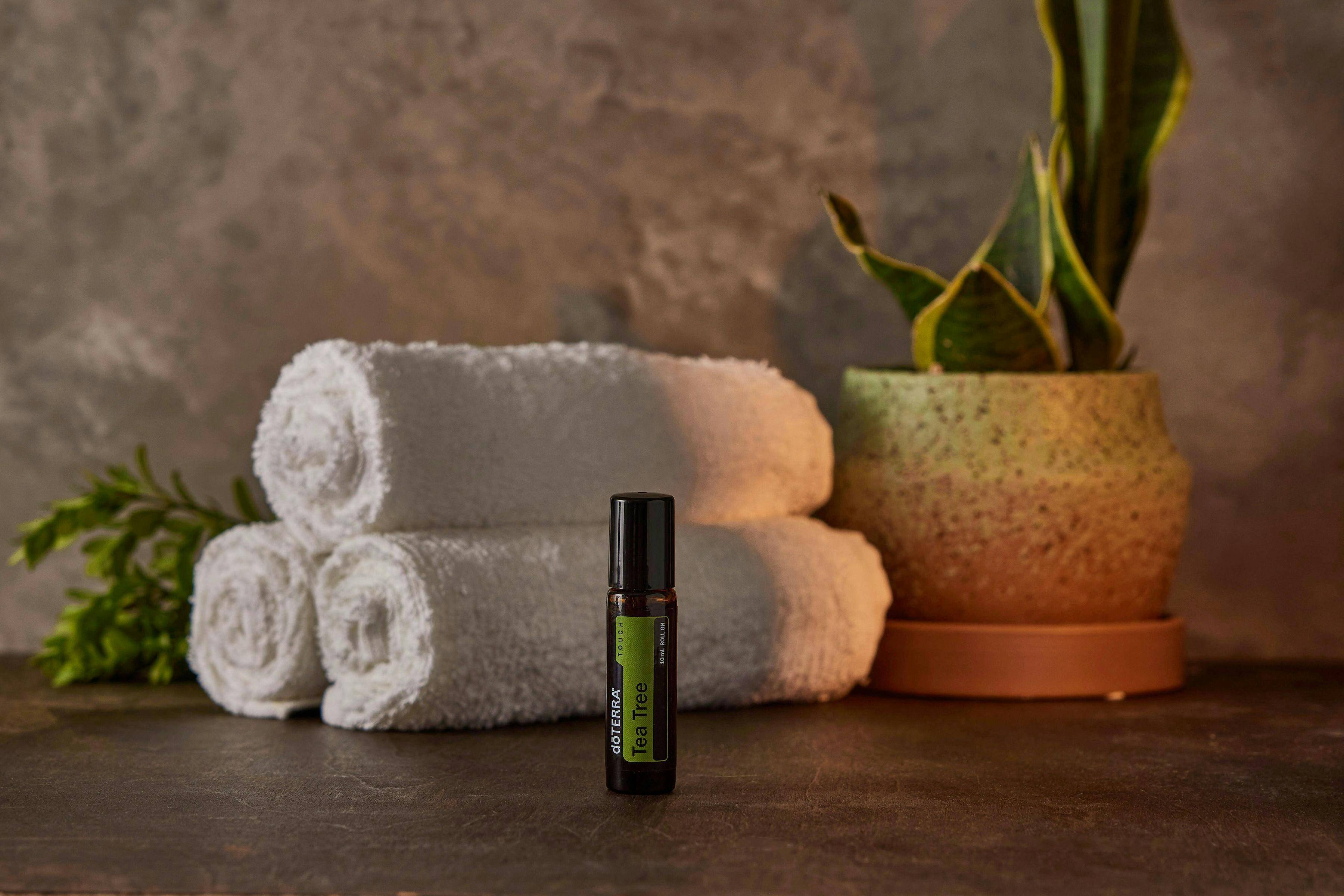What Exactly Is "Tea Tree Oil," And Where Does It Originate?
Tea tree oil is specifically the oil extracted from the leaves and twigs of the Melaleuca alternifolia tree, otherwise known as the tea tree (hence the name "tea tree oil"). This tree is native to the southeastern coasts of Australia.
How Is Tea Tree Oil Extracted?
Like many other essential oils, tea tree oil is processed and produced through steam distillation: [1]
- The viable parts (i.e., leaves and/or the outermost branches of the plant) are placed in a container called the Still.
- Concentrated steam is released into the Still through a connected compartment, stimulating reactions between the water vapor within the steam and the desired oil within the contained plant material.
- Water vapor pushes out the oil within the plant material, allowing the steam to carry and hold onto the oil until it is extracted.
- As the water vapor condenses back into water, the oil is collected (since oil and water do not mix, oil is insoluble in water, meaning it is easily separated)
- The result is an external amount of the plant-derived oil for topical use.
What Can Tea Tree Oil Be Used For?
Tea tree oil is high in the chemical compounds, terpinen-4-ol and 1,8-cineole, making the oil potently antimicrobial and anti-inflammatory; antimicrobial means it is efficient in killing off microorganisms (like bacteria, fungi, viruses, and parasites), anti-inflammatory means it can reduce inflammation and swelling. [2]
Due to tea tree oil having these compounds as its primary active components, it is commonly used to treat things like: [3]
- Acne
- Athlete's Foot
- Lice
- Nail fungus
- Dandruff
![]()
Alternative Applications of Tea Tree Oil:
1. Oral Care: Freshen Breath
Although tea tree oil is predominantly used to treat topical skin conditions, studies suggest the ingredient also has the potential for safe oral use and oral benefits. According to articles written by Colgate and Gum Disease Guide, tea tree oil can theoretically aid gum health as it fights plaque buildup with its aforementioned antimicrobial properties.
However, it is generally understood that tea tree oil should not be ingested, which is why few products promote prolonged internal use. Even with brief oral use in items such as mouthwash or mouth rinse, it is still advised that tea tree oil products should be used responsibly by a mature audience.
2. Self-Care: Boost Mood
Moreover, tea tree oil is known to have a refreshing and herbal scent. Some people claim that it can be used in aromatherapy to help soothe respiratory problems like congestion and coughs. Since tea tree oil contains the chemical 1,8-Cineol (also known as eucalyptol, as in the eucalyptus plant), which is a therapeutic agent with anti-inflammatory and mucolytic properties, these testimonies are theoretically true, with a market of products to also back it up.[4]
3. First Aid: Help Heal Wounds
In addition to its effectiveness in combating microbes and possessing a strong anti-inflammatory force, tea tree oil can also be used to treat things like bug bites, small cuts, bruises, and scrapes. Tea tree oil can help speed up the recovery of wounds because of its antimicrobial properties; it is antiseptic/aseptic, which means it can prevent infections from escalating by not allowing the bacteria to travel into the bloodstream (in other words, it reduces the chances of getting sepsis).[5]
![]()
Potential Side Effects of Tea Tree Oil: [6]
1. Topical
- Allergic skin rash
- Burning sensation
- Dryness/Scaling
- Hormonal Changes
- Itching
- Redness
- Skin irritation
- Stinging sensation
2. Respiratory
- Coughing
- Shortness of breath
- Nose and throat irritation
3. Internal
- Drowsiness
- Confusion
- Uncoordinated movement
- Loss of consciousness
- Coma
![]()
Final Notes:
- Tea tree oil is very versatile and can be a great addition to anyone's life if they know how to use it.
- Tea tree oil, in any capacity, should be used with caution and in moderation as it can leave damaging side effects.
- Tea tree oil is still being researched, there are speculations that it can be used to treat cancer.
- Tea tree oil is in a lot of cosmetic products that are relatively low-cost and are pretty accessible.
- Tea tree oil should be diluted with a carrier oil (such as coconut oil, olive oil, or almond oil) because it could cause adverse irritation if applied to skin in its pure form.














